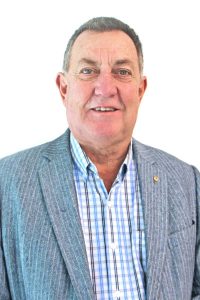
Jim McGowan AM, Metro North Board Chair
Deadly Start
In my role as Board Chair at Metro North, there are some opportunities which are best described as inspiring. One such occasion was the Deadly Start Orientation last Wednesday. We welcomed 45 Aboriginal and Torres Strait Islander school-based trainees and their families and friends to Metro North. We also acknowledged the 30 graduating students, who will act as mentors for the new cohort.
I was also pleased to announce that both these groups will be offered employment upon the successful completion of the program. Some may seek to work with us upon completion, and whilst we hope that many will go on to further study either at TAFE or university, many may benefit from part-time of casual work. Whether, in the end, they seek employment with Metro North or in the health sector more generally, it is not as important as providing them with the qualification and skills to gain employment. Education and employment are key elements around the social determinants impacting on health outcomes and important if we are going to achieve Health Equity outcomes for our First Nations people.
The Minister for Health and Ambulance Services, the Hon. Yvette D’Ath welcomed the students and encouraged them to consider a career in health.
The pride of the Deadly Start students and their families and friends who attended in large numbers was uplifting to all.
The State Budget
The Board considered the outcomes of the Budget for Metro North. It is pleasing that the increases related to the Care for Queensland initiative have been converted to recurrent funding, giving us greater certainty and will enable staff appointed under that initiative the opportunity for permanency.
We welcomed the significant investment in our infrastructure, including the new Queensland Cancer Centre ($750 million) and the expansion at the Redcliffe Hospital ($1.06 billion) and The Prince Charles Hospital ($300 million). This will add to the increased capacity from the redevelopment along with Caboolture and the three satellite hospitals.
One of the issues which people have consistently asked me about over the last three years is around the IeMR rollout across the HHS. We will all welcome the commitment to fund a staged roll out and will provide further information when the details are finalised.
The Budget commits to an increase of $1.645 billion over five years to address mental health, alcohol and other drug services. The details of the allocation are still to be finalised.
There is funding support for the Queensland Health reform agenda, including $64 million for Connecting Community Care initiatives, $26 million for patient flow initiatives, $11.7 million for rapid access services, and $16 million over 4 years for long-stay rapid response initiatives. Access to these reform funds will be based on submissions to Queensland Health. Metro North has already done a deal of work on a range of proposals, consistent with our history of being a leader in health reform.
There are also incentives attached to increasing our own source revenue.
The Board will meet with the leadership team and Clinical Stream leads in July to ensure that we have well developed plans to ensure that Metro North is advancing these critical reforms so that we are better able to manage the increasing demands on our services and ever-increasing community expectations.
Health Equity
On Monday 4 July, I had the privilege of launching the Metro North Health Equity Strategy, which was formally endorsed at the Board meeting on 26 June. This is a watershed mark in our endeavours to Close the Gap in health outcomes for First Nations people. Health Equity goes beyond equity in access to health services; it is a commitment to equity in health outcomes. Metro North has undertaken an extensive consultative process involving Elders and community members, our Indigenous staff, our partners including IUIH and the Brisbane North PHN, and Metro North staff. It is a credit to the leadership and sheer hard work of Sherry Holzapfel and her team in the Aboriginal and Torres Strait Islander Health Leadership Team. The most impressive feature of that consultation and critical future success factor is listening to our First Nations consumers to understand their concerns and needs.
To be true to Health Equity, this will require changes in our behaviours and our interactions with Aboriginal and Torres Strait Islander patients and consumers.
I commend the strategy to you all. I encourage you to consider the actions that are included in the comprehensive Implementation Plan and become involved in the actions needed to deliver on the strategy’s aspirations.
This week is NAIDOC Week, where the theme is “Get Up, Stand Up, Show Up.” It was a fitting way to start NAIDOC Week with the launch of our Health Equity Strategy.
Quotes to contemplate
“Youth is the hope of the future.” Jose Rizal ((1861-1896) Filipino nationalist, poet and writer.)
“It is not what happens to you but how you react to it that matters.” Epictitus ((50AD to 135AD) Greek slave who became an important philosopher.)
Regards,
Jim McGowan AM
Metro North Board Chair